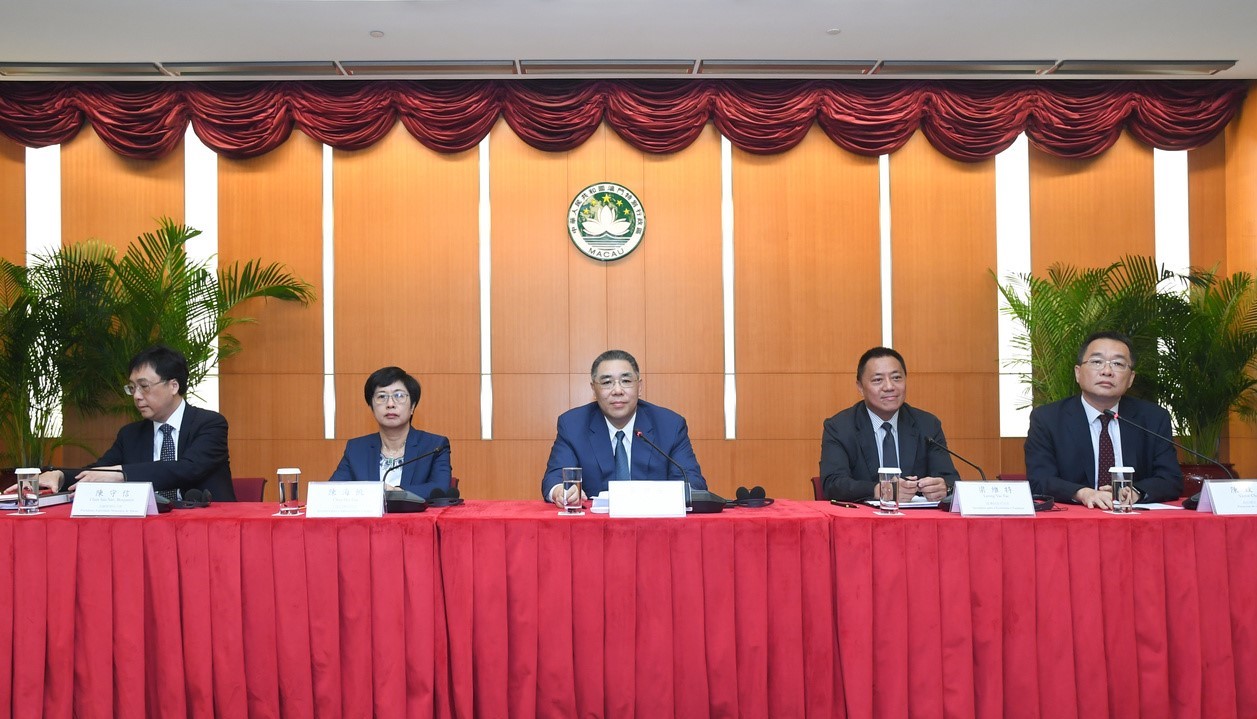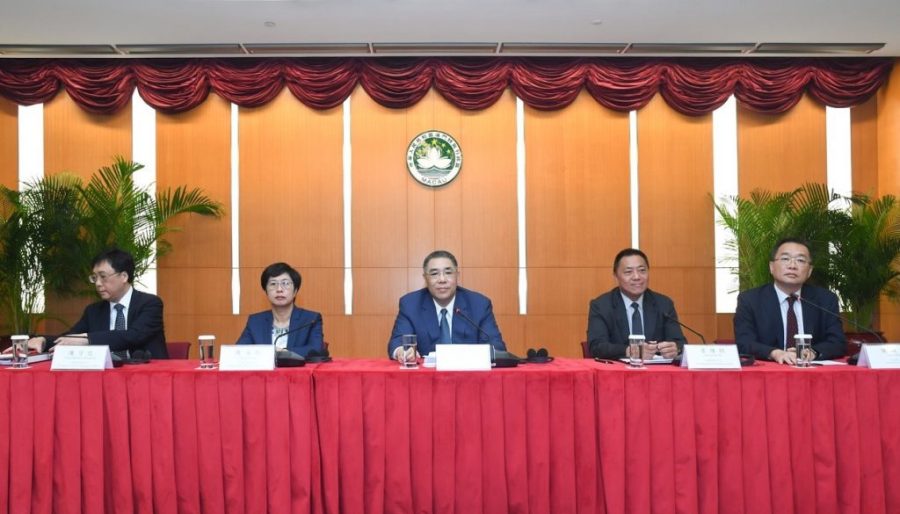The government announced on Monday that it has requested the Legislative Assembly (AL) to withdraw from the agenda for Wednesday’s plenary session the discussion on the outline of its controversial bill which proposed the transfer of 60 billion patacas from the government’s financial reserves for the setting-up of the Macau Special Administrative Region (MSAR) Investment and Development Fund.
The bill was to amend the government’s 2019 budget so that the government could allocate the 60 billion patacas from its financial reserves and use the amount as the fund’s start-up capital.
The government also said that it now plans to consult the public first about the setting up of the fund – the local version of a sovereign wealth fund – before going ahead with the matter.
Chief Executive Fernando Chui Sai On made the announcement during a hastily-convened press conference at Government Headquarters Monday evening.
Secretary for Administration and Justice Sonia Chan Hoi Fan, Secretary for Economy and Finance Lionel Leong Vai Tac, Macau Monetary Authority (AMCM) President Benjamin Chan Sau San, and Victor Chan Chi Ping, the government’s chief spokesman, attended the press conference which was chaired by Chui.
The Executive Council – the government’s top advisory body – announced late last month that the government planned to set up the MSAR Investment and Development Fund with a proposed capital of 60 billion patacas and that it would submit to the legislature the bill amending its 2019 budget so that it could go ahead with the 60 billion pataca injection. The discussion of the bill’s outline was initially on the agenda for Wednesday’s plenary session.
The amendment bill proposed that the 60 billion patacas be taken from the “extraordinary” reserves of the government’s financial reserves for the establishment of a company tasked with managing the fund – Macau Investment and Development Fund Management Limited. The 60-billion-pataca fund would have accounted for about 11 percent of Macau’s total reserves, according to official statistics.
During Monday’s press conference, Chui said that as members of the public “have raised various views” about the bill which proposed the establishment of the Macau Investment and Development Fund Management Limited with a capital of 60 billion patacas, the government now believed that it would need to provide residents with “more explanations” about the proposed setting-up of the fund and launch a public consultation on the matter, before a discussion on the bill in the legislature could take place, with the aim of “allaying public concerns”.
Chui also said that the respective government entities under Leong’s portfolio had carried out “a large number of studies” concerning how the company managing the fund should operate, which he said “has laid a foundation for the setting-up of a system” regulating the fund’s operation. Chui said that the government now aimed to enable residents to gain a better understanding of the fund company via a public consultation process which would be carried out in an “open” manner with “professional information” available.
Chui also reaffirmed that he won’t take up any position in the future fund company.
When asked about his plans after leaving his chief executive post, Chui said that he wants to first take a rest and spend time with his family. Chui said that he would surely comply with the respective laws and regulations on retired chief executives when taking up any position in the public or private sectors. Chui also said that he had “a sense of mission” during his work for the local government over the past 20 years. Chui was the government’s policy secretary for social affairs and culture from Macau’s return to the motherland in 1999 until 2009 when he became chief executive.
When asked by the media whether the government worried that going ahead with the controversial bill could spark massive demonstrations so that it had decided to halt it, Chui replied that he “has already explained the matter and will not make further comments”.
During Monday’s press conference, Leong backed the government’s proposed setting-up of the fund. Leong said that Macau’s civil society had been urging the government to make good use of its financial reserves and increase “the returns on the public financial resources”. Leong also said that a report by the International Monetary Fund (IMF) in 2014 also backed the setting-up of a government-run fund similar to other state-owned investment funds generally known as sovereign wealth funds in Macau.
Leong denied some claims that the government had initially intended to rush the bill through the legislature before the term of the current government ends on December 19.
Leong noted that the government’s Five-Year Development Plan (2016-2020) published in 2016 “clearly states” that the government would establish the MSAR Investment and Development Fund in 2019. Leong said that during the process when the government was drafting its Five-Year Development Plan, the government had consulted the public about the development plan, including the setting-up of the fund. Leong also said that he had briefed lawmakers on the proposed setting-up of the fund on many occasions.
According to the Macau Post Daily, the proposal of setting up the fund was first mentioned in Chui’s campaign platform when he sought re-election in 2014. He said at that time that his government would study the feasibility of setting up an investment and development fund for Macau with the aim of making good use of the government’s large financial reserves.






